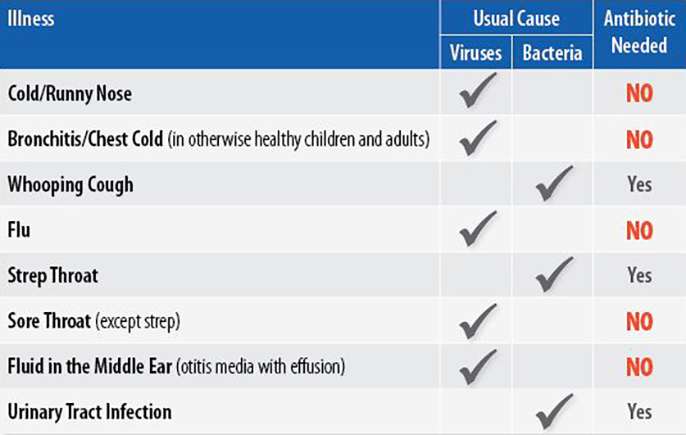Using antibiotics wisely

Antibiotic resistance is a growing problem, both in the United States and around the world.
According to the U.S. Centers for Disease Control and Prevention, an estimated 700,000 people around the world die each year from drug-resistant strains of common bacterial infections. That figure includes 200,000 newborns who die from infections that don't respond to antibiotic treatment.
Knowing how to use antibiotics safely and appropriately empowers everyone to be a part of the solution to preserve the life-saving power of antibiotics, said Larissa May, associate professor of emergency medicine at UC Davis Medical Center and a national expert on antibiotic stewardship.
"Every time a person takes antibiotics, sensitive bacteria are killed, but resistant ones may be left to grow and multiply," she said. "One out of five visits to emergency departments nationwide for adverse drug events are caused by complications from antibiotic use, especially among children under 18 years of age. Antibiotic resistance in children is of particular concern because they have the highest rates of antibiotic use and often have fewer antibiotic choices since some antibiotics cannot be safely given to children."
To use antibiotics wisely, DO:
- Ask your physician how you can feel better and get relief from symptoms without using antibiotics. Sometimes the best treatment may be relieving symptoms, not an antibiotic.
- Follow your physician's instructions on how to take the antibiotic.
- Safely discard any leftover medication. The U.S. Food and Drug Administration offers tips on safe medication disposal, and the Drug Enforcement Administration identifies medication collection sites by ZIP code.
- Ask your physician about vaccines recommended for you and your family. Vaccines are an effective way to prevent infections that may require an antibiotic. Vaccines are also an important way to keep diseases from spreading.

To reduce antibiotic resistance:
- Never take an antibiotic for a viral infection like a cold or the flu. Antibiotics do NOT cure viral infections.
- Never pressure your physician to prescribe an antibiotic.
- Never skip doses or stop taking an antibiotic early, even if you no longer feel sick, unless your physician tells you to do so.
- Never save antibiotics for the next time you become sick.
- Do not take antibiotics prescribed for someone else.
"Taking the wrong medicine may delay correct treatment, allow bacteria to multiply, and cause unwanted or severe side effects," May said.
In April 2016, the Pew Charitable Trusts recognized UC Davis Medical Center among the leaders in the national effort to prescribe antibiotics appropriately and safely. The report, titled "A Path to Better Antibiotic Stewardship in Inpatient Settings," provides in-depth case studies of UC Davis' and other institutions' Antibiotic Stewardship Programs.


















